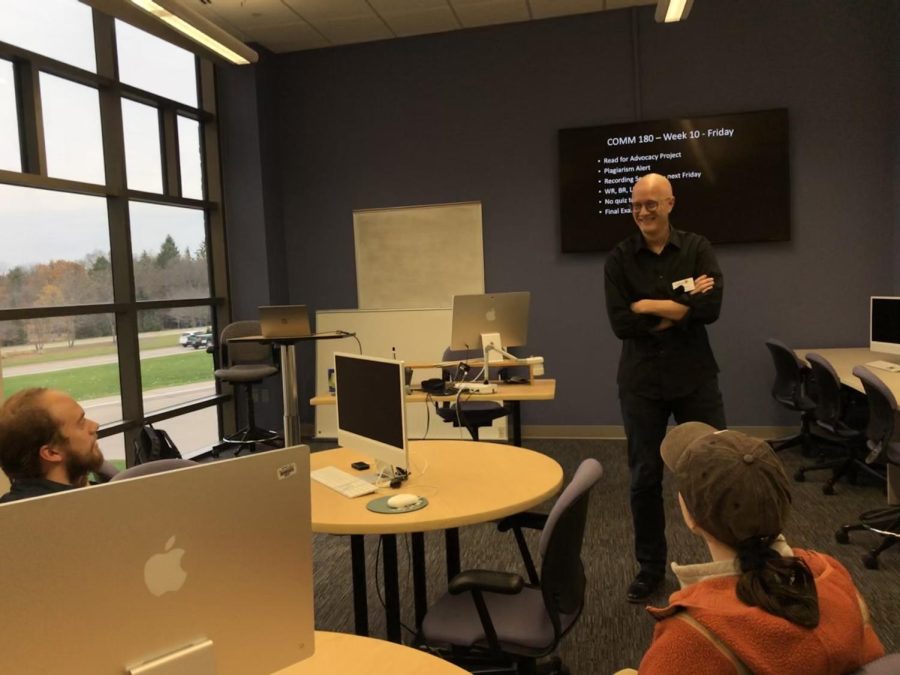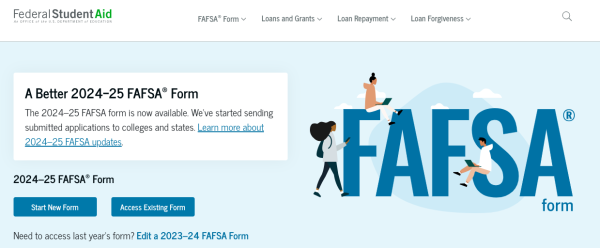Administration and department chairs successfully negotiate new academic calendar
Advising days are an important way for students and faculty to connect, according to professors.
With over 30 advisees, Jaclynn Lubbers, chair of the nursing department, spent 17 hours this semester on advising alone.
“Even two days of advising isn’t sufficient, because you can’t do it in two days,” she said. “I start the week before advising, actually.”
So, during a meeting of department chairs on Oct. 19, Lubbers was “really surprised” to hear that administrators had completely eliminated advising days from next year’s academic calendar.
She wasn’t alone. “[The decision] was presented to us as, ‘Here it is,’” Jennifer Holberg, chair of the English department, said.
Taking into account input from several other groups (including faculty groups), the Senior Academic Leadership Team — a 14-person team comprising provosts, deans and staff members — initially decided to eliminate advising days to achieve a number of complex scheduling goals. But upon hearing wider faculty feedback, SALT quickly reversed the decision, restoring advising days.
The short-lived elimination of advising days was part of a larger academic calendar revision. The revision has several goals, according to information provided by Provost Noah Toly, one member of SALT. One objective was to make space for a week before the semester for intensive experiences; another was to accommodate the four-two credit transition; still another involved placing both fall and spring break directly in the middle of the semester, with a relatively equal number of class sessions occurring before and after. Several of these goals responded directly to requests made by students, faculty and staff.
Meeting each objective while maintaining advising days wasn’t easy, according to Toly. Since it seemed to some administrators that not all faculty used advising days while some students treated them as a break, their elimination seemed like a viable option.
“There’s always multiple things that they’re trying to juggle,” Holberg said. “They were trying to do a number of things with the schedule to serve a lot of goods.”
Even so, the decision to remove advising days was met with shock and alarm by department chairs.
“Chairs were very concerned,” Holberg said. “We think advising is a distinctive [feature of Calvin], and we think it’s important that we make time to do it well.”
Accordingly, several chairs made their concerns known to administrators. According to Toly, chairs emphasized the importance of advising days for professors with high advising loads. They also noted the multitude of other academic changes taking place at Calvin, like the four-two credit transition.
“In the four-two transition, we felt like it was important that we are able to do more advising, not less,” Holberg said.
Lubbers pointed out the move to Workday as another complicating factor. “It’s not that I’m not willing to try new things, [but] there’s just been a lot of new things to navigate,” she said.
Some professors even suggested novel ways to preserve advising days, according to Toly.
“I am grateful for the good work of chairs, who represented their departments well, and for all who provided constructive feedback that helped us see additional possibilities,” Toly said.
In response to feedback, SALT moved swiftly to explore alternatives.
“The assurance that our voices were being heard came quite quickly,” Lubbers said.
On Oct. 26, Toly informed chairs via email that SALT had restored advising days.
Administrators also decided to increase the frequency of department chair meetings in order to “more regularly engage our chairs and tap their perspective and experience early in the exploration and design of possible initiatives,” Toly told Chimes.
“I feel like this is a success story,” Holberg said. “It definitely feels like we [professors and administrators] are on the same team.”
After all, advising isn’t just for crafting schedules, according to Lubbers. “The idea that advising is course planning is not entirely true,” she said. “It’s a real privilege to sit across from a student and get to know who they are, how they are being shaped by this [Calvin] environment [and] how, then, that’s leading into their vocation.”
“It’s important to prayerfully consider your aspirations for the future,” said Grace Lunger, a senior studying political science and strategic communication. “Advising days might be the only time a student gets to intentionally consider these things with a scheduled time for guidance.”
Ultimately, Holberg hopes the story will serve to reinforce the importance of advising days. “I hope students hear it as an affirmation of how much their professors care about spending that time with them — not just talking about classes, but talking about their vocational choices,” she said. “[Advising days] aren’t vacation days. They really are days to help you to invest in your future.”







Lucinda Martin • Nov 12, 2022 at 8:16 pm
I learned so much from Jesus and John Wayne! I had to read a chapter, stop to mull over the new triggering things I learned, and then move on to the next chapter. I cheer Calvin for the encouragement given to faculty to study and share what they discovered. I also enjoy the January Authors’ Series.